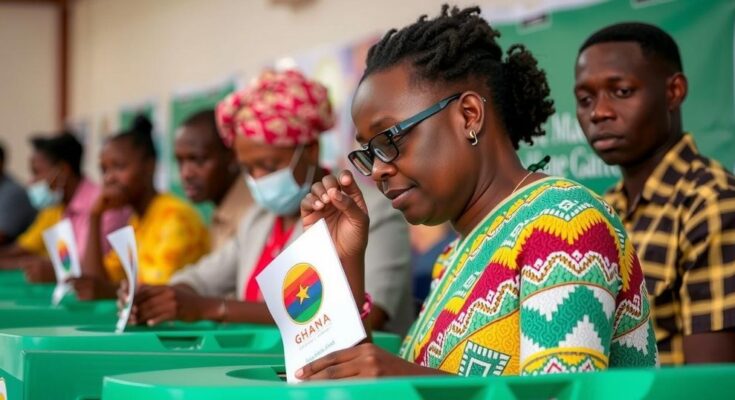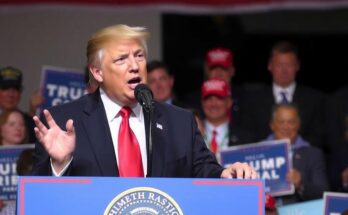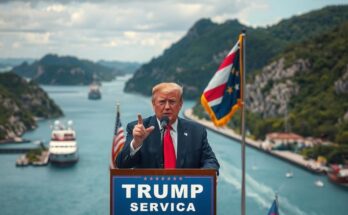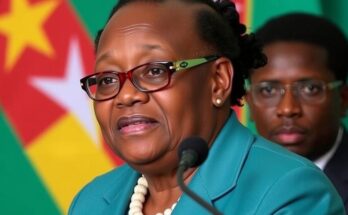Ghana’s election day has arrived, with citizens selecting a new president amid economic challenges such as high inflation and a debt crisis. Incumbent President Nana Akufo-Addo steps down, with former President John Mahama and Vice-President Mahamudu Bawumia as primary candidates. About 19 million Ghanaians are registered to vote, and the election also includes parliamentary selections. Polling stations open from 07:00 to 17:00 GMT, with results expected within three days.
Election day has arrived in Ghana, where citizens are set to choose a new president amid pressing economic concerns, including a debt crisis and rising living costs. This election marks a significant transition, as incumbent President Nana Akufo-Addo steps down after fulfilling the constitutional limit of two terms. The leading candidate for the opposition National Democratic Congress (NDC) is former President John Mahama, vying for a comeback, while Vice-President Mahamudu Bawumia represents the ruling New Patriotic Party (NPP), with the potential to become the nation’s first Muslim leader if elected.
Voter registration records indicate nearly 19 million Ghanaians are eligible to cast their ballots. Notably, despite recent efforts to improve female representation in politics, the only female presidential candidate, Akua Donkor of the Ghana Freedom Party, passed away in October. Her name will still feature on the ballot due to the disqualification of her successor.
Voters are also selecting representatives for 275 parliamentary constituencies. Since the re-establishment of multi-party politics in Ghana in 1992, only candidates from the NDC or NPP have won presidential elections, and no party has held power for more than two consecutive terms. Polling stations will open at 07:00 GMT and close at 17:00 GMT, allowing a ten-hour period for voting, with results expected to be announced within three days. A candidate must secure over 50% of the votes to avoid a run-off scheduled to occur by the end of December.
In the final campaign rally, Mr. Bawumia asserted, “What is clear is that notwithstanding the challenges we’ve had, we have performed better than the government of John Dramani Mahama.” Conversely, Mr. Mahama stated, “It is a choice between the Ghana we have today and the Ghana we want together. A Ghana of opportunity, prosperity, and justice for all.” Economic challenges have prompted heightened voter engagement, particularly among the youth, following a period of severe inflation peaking at 54.1% in 2022 and ongoing debt restructuring negotiations between the government and international creditors.
The current elections in Ghana are pivotal as they follow significant economic hardship, including a widespread debt crisis and high inflation that peaked at over 54% in 2022. As the nation transitions from Nana Akufo-Addo’s presidency, the political landscape features familiar figures like John Mahama and Mahamudu Bawumia, as well as newer candidates appealing to the youth. This election follows legislative changes aimed at enhancing women’s participation in politics, illustrating a dynamic interplay between socio-economic conditions and electoral politics.
The elections in Ghana represent a critical junction for the nation’s future, as voters navigate significant economic challenges while selecting a new president and parliamentary representatives. With enduring issues of inflation, poverty, and unemployment impacting the electorate, the outcomes hinge on the citizens’ desire for change versus continuity. The decision made at the polls will fundamentally influence the country’s trajectory as it seeks to recover from economic turmoil.
Original Source: www.bbc.co.uk




